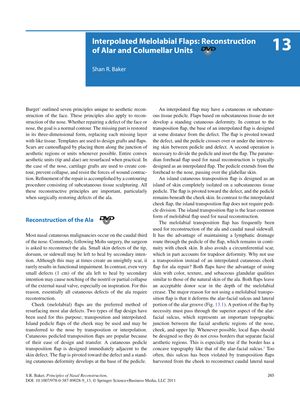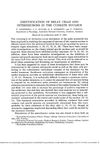Interpolated Melolabial Flaps: Reconstruction of Alar and Columellar Units
October 2010
in “
Springer eBooks
”

TLDR Using cheek skin and cartilage grafts for nose reconstruction after skin cancer surgery can maintain shape and function but may require multiple surgeries and hair removal in men.
The document outlines the use of interpolated melolabial flaps for reconstructing the alar and columellar units of the nose, particularly following Mohs surgery for skin cancer. It details the surgical technique, which involves using cheek skin and auricular cartilage grafts to maintain the natural contour and function of the nose. The procedure is described as ideal for alar reconstruction due to its resistance to wound contraction and ability to maintain the nose's natural shape. The document also discusses the necessity of multiple surgeries, including contouring surgeries in about 75% of cases, and compares the interpolated flaps to other methods, noting their advantages in preserving natural fullness and minimizing scarring. However, it also mentions disadvantages such as the need for hair removal in male patients and the potential for complications like partial necrosis. The document concludes that while columellar reconstruction is challenging, various techniques, including interpolated melolabial flaps, can achieve aesthetic restoration with careful attention to blood supply and contouring.




